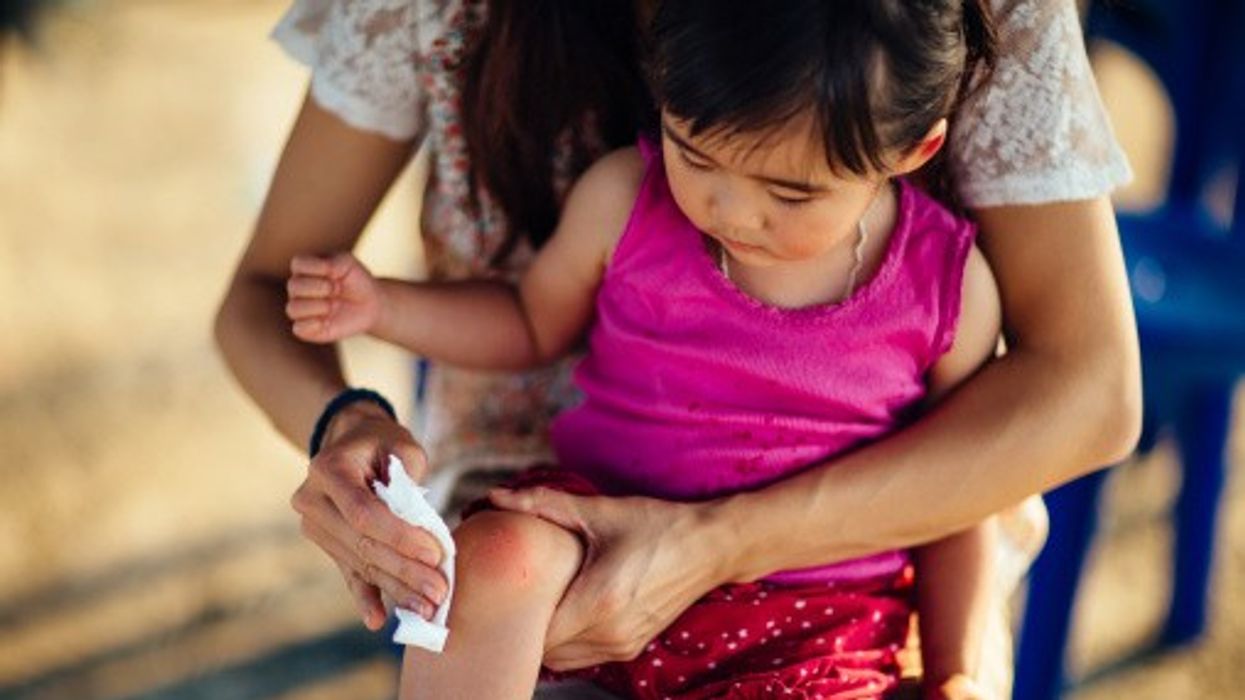Key Summary
- People are warned not to use certain non-sterile alcohol-free wipes due to a bacteria that can cause serious infection
- Affected products have been removed from sale but may still be in homes or first aid kits
- Use only sterile wipes on wounds and seek medical help if signs of infection appear
The UK Health Security Agency (UKHSA) and the Medicines and Healthcare products Regulatory Agency (MHRA) are urging people to not to use certain non-sterile alcohol-free wipes on their injuries, wounds, broken skin or for cleaning of intravenous lines as they are contaminated with the Burkholderia stabilis infection.
The health alert was announced as the experts found the presence of the infection with the potential to cause serious outbreaks.
Burkholderia stabilis is a bacteria found in the natural environments that rarely causes infection in healthy people, posing very low risk to the general public. However, those who are immunocompromised or have conditions like cystic fibrosis, or are using intravenous lines at home, face a higher risk of infection.
Since 2018, 51 Burkholderia stabilis cases have been confirmed in the UK, possibly linked to certain non-sterile alcohol-free wipes. Though no deaths occurred, some infections required hospital care, and no person-to-person spread was found.
ValueAid alcohol free cleansing wipes, microsafe moist wipe alcohol free and steroplast sterowipe alcohol free cleansing wipes are the infected products available in the market.
Along with them, reliwipe alcohol free cleansing wipes also showed the presence of Burkholderia strain, yet it was not the variant that caused the outbreaks.
“UKHSA uncovered the link to this outbreak through testing of wipes used by patients and worked quickly to notify health professionals through a patient safety alert, reinforcing existing infection prevention and control guidance,” said Dr James Elston. consultant in epidemiology and public health at UKHSA.
These products, once used for skin or wound cleaning, have been withdrawn from sale but may still be in first aid kits or homes.
They are not routinely used in the NHS, and anyone who has them should avoid use and safely dispose of them in household waste due to possible contamination.
People are adviced to not use these wipes to clean their wounds or, intravenous lines, instead they are urged to follow the NHS guidance to treat such issues to stay safe.
Individuals are requested to seek immediate medical assistance in terms symptoms such as a wound infection with redness, swelling, increased swelling, warmth around the cut and pus or other drainage from the wounds.
Healthcare professional help is also immediately needed during an intravenous line infection including redness, swelling, pain near that infected area along with fever and chills.
Usage of wipes that are specifically marked as ‘sterile’ on cuts or wounds, and contacting a health professional in case serious concerns are the advices put forward by the UKHSA.
“We consider wipes which are intended for a medical purpose to be medicines. These products do not have a medicines authorisation, and we are taking appropriate action to ensure compliance with the requirements of the applicable legislation governed by MHRA,” reminded Dr Alison Cave, MHRA chief safety officer.













